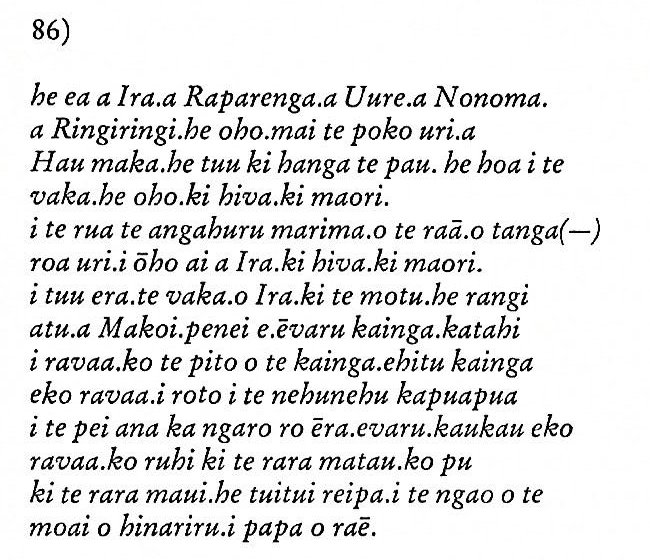
|
E:84 → Julian
spring equinox ↔ Equinox at Antares
... Antares, visible in the
morning sky of December-January, came to stand
for summer heat; hence the saying, 'Rehua
cooks (ripens) all fruit'. The generally
accepted version of the Rehua myth,
according to Best, is that Rehua had two
wives, the stars on either side of Antares. One
was Ruhi-te-rangi or Pekehawani,
the personification of summer languor (ruhi),
the other Whaka-onge-kai,
She-who-makes-food-scarce before the new crops
can be harvested ...
|
SIRIUS
Alkes
(JUNE 30)
*165 =
☼161
Rangi
Meamea |
JULY 4 (☼101) |
AUG 16
(☼144) |
SEPT 22
(☼181) |
|
Zosma / Coxa
*169 =
☼165 |
Thuban
*212 =
☼208 |
Antares
*249 =
☼245 |
|
Sept 6 (249) |
Oct 19 (292) |
Nov 25
(329) |
|
84 |
|
EQUINOX (84) |
180 |
EQUINOX (265) |
|
 |
 |
|
May 28 (148) |
Nov
25 (329) |

|
| i oti era te kai
te too mai ki uta.he ki.te ariki |
After
all the food supplies had been brought on land [i
oti era te kai te too mai ki uta],
the two rulers [te
ariki arurua], the king and the queen
said, 'Drag the canoes on land and take them
apart (so the wood can be used) to build houses
and cover the roofs!'
|
|
arurua.te ariki
tamaaroa.te ariki tama(-) |
|
hahine tokoa.kā
toi mai te miro.ki
uta |
|
ka
titingi.mo te hare
mo ato. |
|
Toi.
Ta.: Alphitonia zizyphoidea. Mq.:
toi, a climbing plant. Sa.: toi, a
tree. Churchill. Mq.: toitoi, true,
right, sincere. Ha.: koikoi, substantial,
honorable. Churchill.
... He cleared the trunks of their branches and
bark, hewed them into shape, and with strong
fau ropes he and his men drew them down the
valley over cliffs and ravines, seeming to feel
it merely light work. Thus King Puna was
robbed of his fine aha-tea tree, his
mara-uri tree, a toi (Alphitonia)
tree, and a hauou (pua, Fagraea)
tree; and Hiro spared not the trees
sacred to the gods around the marae. He
cut down a great tamanu (Callophylum),
stripped the trunk of its branches and bark,
split it up for planks for the bows of his
canoe, and trimmed the branches for outriggers
and crossbeams. He cut down a most sacred
miro (Thespesia) tree for planks for
the after part of his canoe, and he took two
tall straight breadfruit trees for planks for
the deck houses. Then he went into the woods and
cut down straight fau trees (Hibiscus
tiliaceus) for paddles and for floor planks,
and three slim hutu (Barringtonia)
trees for masts. After all this depredation,
Hiro and his men helped themselves to wood
and thatch and reeds and all other material
needed for a shed in which to build the canoe
and for rollers to place under it, King Puna
not daring to oppose them, as Hiro was
too powerful and dangerous to vex ...
KOI, v. Haw., to flow, rush, like
water over a dam; koi-ei-ei, a rapid
current; koi-ele, to overflow. N. Zeal.,
toi, to dip in water, to duck.Iaw.,
toya, water. Sanskr., toya, water.
Apparently there is no etymon for this word in
Sanskrit or Vedic, for Benfey suggests that it
derives 'perhaps from tu.' But the
primary, at least the Vedic, meaning of tu
is 'to be all-powerful'. Taking the New Zealand
term as the best-preserved among the Polynesian
dialects, it certainly offers a better etymon to
the Sanskrit toya than the Vedic tu.
(Fornander)
... the progeny
of Tu increased: [1] Rongo,
Tane, Tangaroa, Rongomai,
Kahukura, Tiki, Uru,
Ngangana, Io, Iorangi,
Waiorangi, Tahu, Moko,
Maroro, Wakehau, Tiki, [17]
Toi, Rauru, Whatonga -
these were the sons ...
Ta.: toi, axe. Churchill.
Tiri.
Mgv.: To throw away, to reject, to neglect.
Ta.: tiri, to cast a small net. Mq.:
tii, titii, to throw away, to
abandon, to reject. Sa.: tili, a small
net and its cast. Ma.: tiri, to throw one
by one. Titiri, to abandon, to abjure;
rima titiri, to walk with the hands behind
the back. T Pau.: titiri, to abandon, to
leave, to abjure, to deny. Mgv.: tiri, to
throw away, to reject, to neglect, to lose. Mq.:
tií, titií, to throw away, to
reject, to abandond, to leave behind. Ta.:
titiri, to reject, to throw away. Churchill.
He mate te matu'a he ato tepoki i te rîu o
toona matu'a; he-ariga ora o toona matu'a
[when] the father dies, [and] the son sings a
riu for his father, this constitutes an
ariga ora of his father. Vanaga. |
|
he
totoi mai aruaru
miro ki uta.he titingi.he oti. |
They dragged the
two canoes on land and took them apart. |
|
Toto. 1.
Blood; he-gaaha te toto mai roto mai te haoa,
blood gushes from inside the wound; toto
hatukai, coagulated blood. 2. Rust; to rust.
Vanaga. Blood, bloody, to let blood, to make
bloody, to bleed, to dissolve, rust; ariga
toto, florid, ruddy complexion; hakatehe
ki te toto, to bleed; toto pine, to
bruise; toto ohio, iron rust. Mgv., Mq.:
toto, blood. Ta.: toto, blood,
sap. Churchill. Totoro = to crawl; ki
totoro te poki, when the baby crawls.
Vanaga. |
|
te titingi.he ato i
te hare.e Nuku kehu.anake(-) |
After
they had finished disassembling the canoes, Nuku
covered all the houses. |
|
anake.te hare. |
|
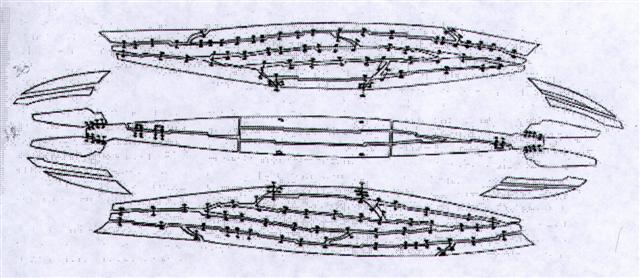
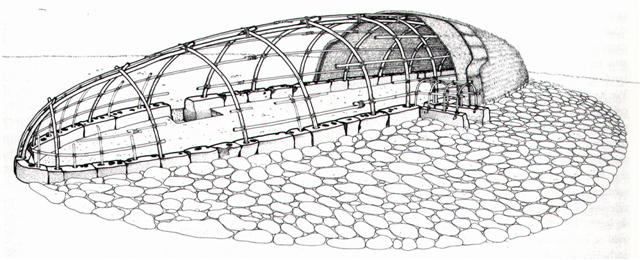 |
|
he ki a Teke.ki
Oti.ka tahunga koe
i te hu- |
Teke says to Oti:
'Distribute [ka tahunga] the seedlings [te
huri] among the people (mahingo)!' |
|
ri.ki tou mahingo. |
|
Tahu. To
assist. T Ma.: tahutahu, to attend upon.
Tahuga, pair, to share out, to put in
order, to distribute. Hakatahuga, to put
in pairs, to arrange. P (Metathetic from stem
tufa). Mgv.: tahua, a collection of
things properly classified and kept in order.
Mq.: tauna, a couple. Churchill. Pau.:
tahua. 1. Field of battle. Ta.: tahua,
id. 2. Floor. Ta.: tahua, id. Tahuga,
wise, capable, doctor, artisan. Mgv.: tuhuga,
wise, instructed, adroit. Mq.: tuhuna,
wise, instructed, artisan. Sa.: tufuga,
carpenter. Ma.: tohunga, adroit, wise,
priest. Tahutahu, sorcerer. Ta.: tahu,
sorcerer. Mgv.: tahu. 1. A tenant farmer.
Ma.: tahu, opulent, possessing property.
2. To stir up a fire. Ta.: to build a fire, to
light. Mq.: tahu, to light a fire. Sa.:
tafu, id. Ma.: to set on fire, to kindle,
to cook. Tahuna, a shallow, shoal, bank.
Mq.: tahuna, beach gravel, shingle. Sa.:
tafuna, a rocky place in the sea. Ma.: a
shoal, a beach. Tohua, a place of public
assembly. Mq.: tohua, public place, soil,
land. Mq.: tahuahi, the servant in charge
of the fire. Ha.: kahuahi, id. Churchill.
Ta.: tahuhu, ridgepole. Ma.: tahuhu,
id. Mgv.: tohuhu, a ridgepole. Mq.:
tohuhu, ridge, roofing. Churchill. Tahua,
sloping stone surface of ahu. Vanaga. T.
Tahua,
board, plank.
Tahu'a, T. Priest, artist. OR.
Tahua mimi, bladder. Fischer. |
|
he too mai.a Oti.he
tahunga.i te huri.ki te |
Oti took the
seedlings that had been brought along and
distributed them among the people.
He distributed all kinds of [te huru o]
seedlings.
Everyone took his share of the plants that
had been brought along. |
|
tangata.anakeanake.te huru.o te huri.i ta(-) |
|
hunga ai.he too te
tangata era.te tangata era |
|
i taana o te huri.i
taana o te huri. |
|
he rangi hokoou a
Teke.ki toona aniva.pe(-) |
Then [hokoou]
Teke called out [he rangi] to his
retainers (aniva), 'This is [penei]
what you are to do. Do not light the earth-oven
[ē.he meē o kāa.te umu]. The shadow (ata
[te āta]) of the king, the flame (ura)
of the king (may suffer harm) during the night
if shortly before an earth-oven has been lit.' |
|
nei ē.he meē o
kāa.te umu.te āta.o
te ariki. |
|
te
ura o te ariki.i te
po.ana ka iho.te umu. |
|
Umu.
Cooking pit, Polynesian oven (shallow pit dug in
the ground, in which food is cooked over heated
stones); the food cooked in such a pit for a
meal, dinner, or banquet; umu pae,
permanent cooking pit, in a stone enclosure.;
umu paepae, permanent cooking pit with straw
cover for protection from rain and wind; umu
keri okaoka, temporary cooking pit without
stone enclosure; umu ava, very large
temporary cooking pit, made for feasts; umu
takapú, exclusive banquet, reserved for
certain groups of persons, for instance the
relatives of a deceased family member; umu
tahu, daily meals for hired workers; umu
parehaoga, inaugural banquet (made on
occasion of a communal enterprise or feastival);
umu ra'e, banquet for fifth or sixth
month of pregnancy; umu pâpaku, banquet
on occasion of the death of a family member.
Vanaga. Cooking place, oven (humu).
Churchill.
Samoa, Maori, Nukuoro, Niue, Tahiti, Hawaii,
Mangaia, Marquesas, Mangareva, Paumoto: umu,
oven. Tonga: ngotoumu, id. Uvea:
ngutuùmu, id. Futuna: ùmu-kai, id.
Fotuna: amu, cooking place. Rapanui:
umu, oven; humu hare, cook house
... The Polynesian radical is consistently
umu. Tonga and Uvea compound with it a word
which in Uvea is distinctly ngutu mouth
and in Tongan we may feel that ngutu has
been specifically differentiated in this
composite. In the Futuna composite the latter
element is merely kai food ... Particular
interest attaches to the discovery of the amu
type in Mabulag and Miriam, western and eastern
islands of the straits and remote from the New
Guinea coast ... The existence of amu in
Fotuna affords us reason to regard the type as
ancient Proto-Samoan, and that Mabulag and
Miriam received it directly and not on secondary
loan from Motu. Churchill 2.
Ura, lobster. Ûra, flame, blaze
(ûra ahi), to become furious (with
manava as subject: ku-ûra-á te manava).
Úraúra, bright red. Vanaga. 1. Crayfish,
lobster, prawn. P Mgv.: ura, crayfish.
Mq.: uá, lobster. Ta.: oura,
crayfish, lobster. 2. Fire, burning, to be in
flames; uraga, combustion, flame, torch;
hakaura, to cause to glow, to kindle, to
light. P Mgv., Ta.: ura, a flame, to
burn. Mq: uá, id. Uraga, burden,
load, weight. Uraura, vermilion, scarlet.
P Pau.: kurakura, red. Mgv.: uraura,
an inflamed countenance. Mq.: uáuá, red,
ruddy. Ta.: uraura, red. Churchill.
Kura. 1. Also: poukura, the
short, thin, multicoloured feathers of chickens
and other birds. 2. The best of something,
choice. Vanaga. Tutui kura, shawl.
Kurakura, fair, light. Hakakurakura,
to make to blush. P Pau.: kurakura, red,
violet. Mgv.: kurakura, red, yellow,
scarlet. Mq.: uáuá, red, ruddy. Ta.:
uraura, red. Churchill.
Uá. Ata uá,
morning twilight.
Uáuá, to
reside; resident; noho uáuá to settle
somewhere; ina koe ekó noho uáuá, do not
establish yourself there. Vanaga.
.jpg)
.jpg) |
|
E:85 |
| he oho te
tangata.ko toona. o te kona ki toona |
Each
man went [he oho]
to his place [ko
toona o te kona ki toona]
and lived there [o te kona he noho]. |
| o te kona.he
noho. |
|
he kī a Hotu.kia
Teke.ka ui koe i te maara |
Hotu
said to Teke, 'Look around for a suitable area (maara)
to settle the Hanau Eepe and let them work the
fields!' |
|
etahi.mo
hakanoho mo
hakatuki.i te hanau |
|
eepe. |
|
Tutuki: shock, contusion, to run against, to
collide; tukukia, to run foul of. P Pau.:
tukituki, to strike, to pound, to grind.
Mgv.: tukia, to strike against, shock,
concussion. Mq.: tutuki, id. Ta.: tui,
id. Churchill.
... During his descent the ancestor still
possessed the quality of a water spirit, and his
body, though preserving its human appearance,
owing to its being that of a regenerated man,
was equipped with four flexible limbs like
serpents after the pattern of the arms of the
Great Nummo. The ground was rapidly approaching.
The ancestor was still standing, his arms in
front of him and the hammer and anvil hanging
across his limbs. The shock of his final impact
on the earth when he came to the end of the
rainbow, scattered in a cloud of dust the
animals, vegetables and men disposed on the
steps. When calm was restored, the smith was
still on the roof, standing erect facing towards
the north, his tools still in the same position.
But in the shock of landing the hammer and the
anvil had broken his arms and legs at the level
of elbows and knees, which he did not have
before. He thus acquired the joints proper to
the new human form, which was to spread over the
earth and to devote itself to toil ...
Maara. Flat coastal area usable as
landing stage. Vanaga.
Hakanoho, to
abolish, to rent, to lease, to enslave, to
dissuade, to exclude, to exempt, to install, to
substitute, hostage. Hakanohohia,
stopped. Churchill. |
|
he too a Teke.i te
hanau eepe.he mau he oho.ki po(-) |
Teke
took command of the Hanau Eepe and went with
them to Poike. After he had settled them there,
Teke said to the Hanau Eepe, 'Settle her, work,
and keep peace among yourselves (he mee o
mahamaha kina); let this be the goal of
every one of you!' |
|
ike.i hakarere
ai.he kī a Teke.ki te hanau eepe |
|
ka noho.ka
tuki.korua he mee o mahamaha ki |
|
na.hia
korua anake. |
| he too mai a
Teke.i te pahera ariki.hē
avai |
Then
Teke assumed royal powers (pahera ariki)
and passed them on to Iko.
Teke installed the king; Iko was (now) the
king (ariki) of the Hanau Eepe.
Teke called out to the men, 'Iko is your
king, oh people (mahingo)!'
The Hanu Eepe remained there. Teke returned.
(He) came to Oromanga (name corrected;
alternative translation: Along came the adopted
rat, kiore ma(a)nga.). That was Iko.
Twenty-five years. |
| kia Iko.he
hakatuu e Teke.i te
ariki.ko Iko. |
| ariki hanau
eepe.he rangi a Teke.ki te tangata |
| ko Iko.te
ariki.i runga i a korua.e te mahingo ā. |
| he noho.te hanau
eepe.he hoki a Teke.he oho |
| mai ki oremanga. |
| ko Iko.karua
te angahuru marima te tau. |
|
Paka. 1.
Dry; to become dry (of things); pakapaka,
to dry out. Te paka is also the name of
the moss-covered areas, between the small lakes
of volcano Rano Kau, through which one
can pass without getting one's feet wet. 2. To
go, to depart; he-paka-mai, to come;
he-oho, he-paka, they go away. 3. To become
calm (of the sea): ku-paka-á te tai.
Pakahera, skull, shell, cranium; pakahera
puoko tagata, human skull; pakahera
pikea, shell of crab or crayfish. Gutu
pakapaka, scabbed lips. Hau paka,
fibres of the hauhau tree, which were
first soaked in water, then dried to produce a
strong thread. Moa gao verapaka, chicken
with bald neck. Ariki Paka, certain
collateral descendents of Hotu Matu'a,
who exercised religious functions. Vanaga. 1.
Crust, scab, scurf; paka rerere, cancer;
pakapaka, crust, scabby. 2. Calm, still.
3. Intensive; vera paka, scorching hot;
marego paka, bald; nunu paka,
thin. 4. To arrive, to come. 5. To be eager. 6.
To absorb. 7. Shin T. Pakahera, calabash,
shell, jug. Pakahia, to clot, curdle,
coagulate. Pakapaka, dry, arid, scorching
hot, cooked too much, a desert, to fade away, to
roast, a cake, active; toto pakapaka,
coagulated blood; hakapakapaka, to dry,
to broil, to toast. Pakahera pikea, shell
of crab or crayfish. Churchill.
... Up to the present time, fertility spells for
fowls have played an important role. Especially
effective were the so-called 'chicken skulls' (puoko
moa) - that is, the skulls of dead chiefs,
often marked by incisions, that were considered
a source of mana. Their task is explained
as follows: 'The skulls of the chiefs are for
the chicken, so that thousands may be born' (te
puoko ariki mo te moa, mo topa o te piere)
... As long as the source of mana is kept in the
house, the hens are impregnated (he rei te
moa i te uha), they lay eggs (he ne'ine'i
te uha i te mamari), and the chicks are
hatched (he topa te maanga). After a
period of time, the beneficial skull has to be
removed, because otherwise the hens become
exhausted from laying eggs ...
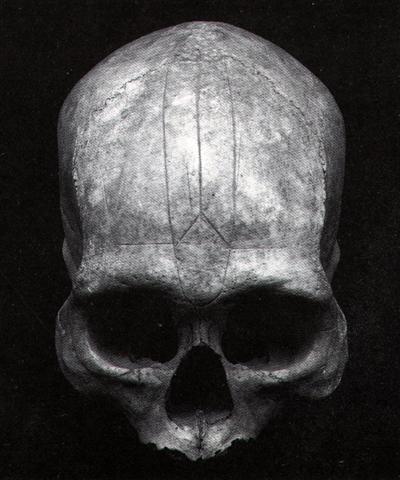
Hakatuu, to erect, to establish, to
inactivate, to form, immobile, to set up, to
raise. Churchill.
...
The state of the tree loomed
large in their thoughts, because it came about
at the same time the head of One Hunaphu was put
in the fork. The Xibalbans said among
themselves: 'No one is to pick the fruit, nor is
anyone to go beneath the tree', they said. They
restricted themselves, all of Xibalba held back.
It isn't clear which is the head of One Hunaphu;
now it's exactly the same as the fruit of the
tree. Calabash came to be its name, and much was
said about it. A maiden heard about it, and here
we shall tell of her arrival. And here is the
account of a maiden, the daughter of a lord
named Blood Gatherer. And this is when a maiden
heard of it, the daughter of a lord. Blood
Gatherer is the name of her father, and Blood
Moon is the name of the maiden. And when he
heard the account of the fruit of the tree, her
father retold it. And she was amazed at the
account: I'm not acquainted with that tree they
talk about. It's fruit is truly sweet! they say,
I hear, she said. Next, she went all alone and
arrived where the tree stood. It stood at the
Place of Ball Game Sacrifice. What? Well! What's
the fruit of this tree? Shouldn't this tree bear
something sweet? They shouldn't die, they
shouldn't be wasted. Should I pick one? said the
maiden.And then the bone spoke; it was there in
the fork of the tree: Why do you want a mere
bone, a round thing in the branches of a tree?
said the head of One Hunaphu when it spoke to
the maiden. You don't want it, she was told. I
do want it, said the maiden. Very well. Stretch
out your right hand here, so I can see it, said
the bone.Yes, said the maiden. She stretched out
her right hand, up there in front of the bone.
And then the bone spit out its saliva, which
landed squarely in the hand of the maiden. And
then she looked in her hand, she inspected it
right away, but the bone's saliva wasn't in her
hand. It is just a sign I have given you, my
saliva, my spittle. This, my head, has nothing
on it - just bone, nothing of meat. It's just
the same with the head of a great lord: it's
just the flesh that makes his face look good.
And when he dies, people get frightened by his
bones. After that, his son is like his saliva,
his spittle, in his being, whether it be the son
of a lord or the son of a craftsman, an
orator.The father does not disappear, but goes
on being fulfilled. Neither dimmed nor destroyed
is the face of a lord, a warrior, craftsman, an
orator. Rather, he will leave his daughters and
sons. So it is that I have done likewise through
you. Now go up there on the face of the earth;
you will not die. Keep the word. So be it, said
the head of One and Seven Hunaphu - they were of
one mind when they did it ...
 |
|
E:86 |
| he ea a Ira.a
Raparenga.a Uure.a Nonoma. |
Ira,
Raparenga, Uure, Nonoma, and Ringiringi got up [he
ea] and left [went to, he oho] the
'Dark abyss [te poko uri] of Hau Maka'
(i.e., Rano Kau), arrived at Hanga Te Pau, put
the canoe into the water [he hoa i te
vaka], and sailed off to [went to, he oho]
Hiva, to Maori. Ira left [for Hiva, for
Maori, i ōho ai a Ira.ki hiva.ki maori]
on the twenty-fifth day of the month of October
('Tangaroa Uri'). |
| a Ringiringi.he
oho.mai te poko uri.a |
|
Hau maka.he tuu
ki hanga te pau. he hoa i te |
| vaka.he oho.ki
hiva.ki maori. |
|
i
te rua te angahuru marima.o te raā.o tanga(-) |
|
roa uri.i
ōho ai a
Ira.ki hiva.ki maori. |
|
Oho.
1. To go: ka-oho! go!
go away! (i.e. 'goodbye' said by the person
staying behind); ka-oho-mai (very often
contracted to: koho-mai), welcome! (lit.:
come here); ku-oho-á te tagata, the man
has gone. Ohoga, travel, direction of a
journey; ohoga-mai, return. 2. Also
rauoho, hair. Vanaga. 1. To delegate;
rava oho, to root. 2. To go, to keep on
going, to walk, to depart, to retire; ka oho,
begone, good-bye; oho amua, to preced;
oho mai, to come, to bring; oho arurua,
to sail as consorts; hakaoho, to send, a
messenger. 3. Tehe oho te ikapotu, to
abut, adjoin; mei nei tehe i oho mai ai inei
te ikapotu, as far as, to; kai oho,
to abstain, to forego; hakaoho, to put on
the brakes. 4. The head (only in the composite
rauoho, hair). Churchill.
Io. Mgv.: At the house
of. Ta.: io, id. Mq.: io, id.
Aka-ioio, feeble, lean and thin. Mq.:
hakaioio, to be wrinkled, flabby flesh of
the aged. Churchill.
Iore. Indistinctly.
Churchill.
... Then
Teke assumed royal powers (pahera ariki)
and passed them on to Iko.
Teke installed the king; Iko was (now) the
king (ariki) of the Hanau Eepe. Teke called out to the men, 'Iko is your
king, oh people (mahingo)!' The Hanu Eepe remained there. Teke returned.
(He) came to Oromanga (name corrected;
alternative translation: Along came the adopted
rat, kiore ma(a)nga.). That was Iko. Twenty-five years.
(E:85]Kiore. Rat.
Vanaga. Rat, mouse; kiore hiva, rabbit. P
Pau., Mgv.: kiore, rat, mouse. Mq.:
kioē, íoé, id. Ta.: iore, id.
Churchill.
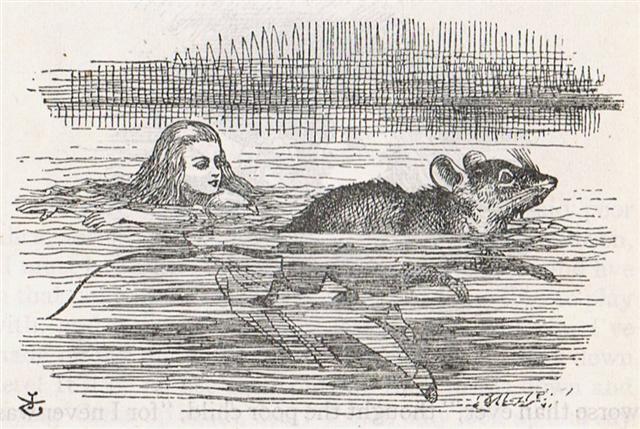
... In China, with
Capricornus, Pisces, and a part of Sagittarius,
it [Aquarius] constituted the early Serpent, or
Turtle, Tien Yuen; and later was known as
Hiuen Ying, the Dark Warrior and Hero, or
Darkly Flourishing One, the Hiuen Wu, or
Hiuen Heaou, of the Han dynasty, which
Dupuis gave as Hiven Mao. It was a symbol
of the emperor Tchoun Hin, in whose reign
was a great deluge; but after the Jesuits came
in it became Paou Ping, the Precious
Vase. It contained three of the sieu, and headed
the list of zodiac signs as the Rat,
which in the far East was the ideograph for
'water', and still so remains in the almanacs of
Central Asia, Cochin China, and Japan ...
Kio. 1. Defeated; one
who has taken refuge in a house or in a cave. 2.
To come out a winner, to win, to be victorious
in war, in a quarrel, in a race: ku-kio-á te
taûa i a Miru, the war was won by the Miru;
ku-kio-á te toru vaka, the third boat
won. Kiokio, to smell of smoke, to smell
smoky (of food). Vanaga. 1. Stick wherewith to
rake things into a heap. 2. Slave, servant,
inferior, of low estate, husbandsman. Hakakio,
to enslave, to reduce to subjection; tagata
hakakio, master. Mgv.: kio, a
servant, slave, tiller of the soil. 3. To
discourage; also kioa. Kiokio,
foul smelling smoke. Mgv.: kio, kiohe,
to extinguish, to put out a light. 4. Pau.:
kiokio, to chirp. Mgv.: kio, id. Ta.:
ioio, to cry, said of a baby. Mq.:
kiokio, to chirp. Sa.: 'io, id. Ha.:
ioio, id. 5. Mgv.: kio, little,
small, said of birds and animals. Mq.: kio,
young of birds. 6. Mgv.: kiokio, a fish.
Mq.: kiokio, id. 7. Mq.: kio, said
of women and children who run away to the
mountain shelters in time of war. Ha.: kio,
to flee, to hasten away in fear. Churchill.
Hakakio, festival of thanksgiving. Barthel
2.
...
Io
dwelt within the breathing-space of immensity.
// The universe was in darkness, with water
everywhere. // There was no glimmer of dawn, no
clearness, no light. And he began by saying
these words,
That he might cease
remaining inactive:
'Darkness, become a
light-possessing darkness.' And at once a light
appeared. He then repeated these self-same words
in this manner,
That he might cease remaining
inactive:
'Light, become a
darkness-possessing light.' And again an intense
darkness supervened. Then a third time He spake,
saying :
'Let there be one darkness
above. Let there be one darkness below. Let
there be a darkness unto Tupua. Let there
be a darkness unto Tawhito. A dominion of
light. A bright light.' And now a great light
prevailed.
Io
then looked to the waters which compassed him
about, and spake a fourth time, saying :
'Ye waters of Tai kama,
be ye separate. Heaven be formed.' Then the sky
became suspended.
'Bring forth thou Te Tupua
horo nuku.' And at once the moving earth lay
stretched abroad.
(Tiwai Paraone, New
Zealand, c. 1880, and translated by Hare
Hongi .)
More than fifty years
after Christianity reached New Zealand it was
suddenly disclosed by certain Maori elders that
the pantheistic mythology hitherto revealed was
not in fact the full story, and that according
to an esoteric or 'higher' learning - withheld
till then because of its sanctity - the Maori
did have a single, Supreme Creator, whose name
was Io .
The first reference in
print to Io seems to have been made in
1876, by C. O. Davis, who said a member of the
Ngapuhi tribe had told him 'that the
Maoris in olden times had worshipped a Supreme
Being whose name was so sacred that none but a
priest might utter it at certain times and
places ... The only complete account was given
much later, in a manuscript dictated by the
Maori elder Te Matorohanga and
published in 1913 ... But both this elder and
his scribe Te Whatahoro were
converted to Christianity long before the
manuscript was composed .
The little word 'io'
or 'kio', as Buck points out in an amused
survey of the principal evidence and claims ...
can sometimes mean the squeak of a rat or bird,
at other times muscular twitches of the body
that were regarded as omens by the Maori. Even
so, Io-Jehovah caused some excitement in
an age which wished to persuade itself that
primitive peoples had really been Believers all
along, and His revelation soon led to further
discoveries elsewhere in Polynesia - notably in
the Tuamotu, where Stimson believed as
late as 1933 that he had unearthed a cult of 'Kiho '.
(Antony Alpers, Legends of
the South Seas.) |
|
i tuu era.te vaka.o
Ira.ki te motu.he rangi |
When
Ira's canoe reached the islets (off the
southwestern coast), Makoi (who was staying
behind) shouted [he
rangi] the following (after him):
'Eight lands (are there), one has been found
(or, an eighth land has been found for the first
time, evaru [ēvaru]
kainga katahi i ravaa), that is, Te Pito O
Te Kainga.
During the fast journey, one cannot find the
seven lands [ehitu
kainga] in the midst of dim twilight.
Once (Easter Island) has been lost [ka
ngaro ro ēra], not even eight groups
of people (i.e., countless boat crews) can find
(it) again.
- Ruhi to the right, Pu to the left, necklace
around the neck of the figure of Hinariru at
Papa O Rae!' |
|
atu.a Makoi.penei
e.ēvaru kainga.katahi |
|
i ravaa.ko te pito
o te kainga.ehitu kainga |
|
eko ravaa.i roto i
te nehunehu kapuapua |
|
i te pei ana ka
ngaro ro ēra.evaru.kaukau eko |
|
ravaa.ko ruhi ki te
rara matau.ko pu |
|
ki te rara maui.he
tuitui reipa.i te ngao o te |
|
moai o hinariru.i
papa o raē. |
... The old Babylonians had the idea of a sky dome with
two holes in it, one at the eastern horizon and one at
the western horizon, to enable the sun to enter and
leave. Sun did not spend the night down under the earth,
but instead went above the sky dome, where it spread its
light during the night ...

...The
heavens varying in number from three to twelve according
to the locality were imagined as formed by widely spaced
concentric hemispheres of solid material which rested
upon the plane of the earth.
In a vertical direction upward the celestial realms
would accordingly lie one above the other; but in the
horizontal direction they formed circular zones on the
earth's surface. Thus a group of islands which
considered itself te pito, the navel of the
universe, was conceived of as situated at the center of
a series of concentric spaces of great but indefinite
extent, separated from one another by the walls of the
various sky domes which rested on the earth ...
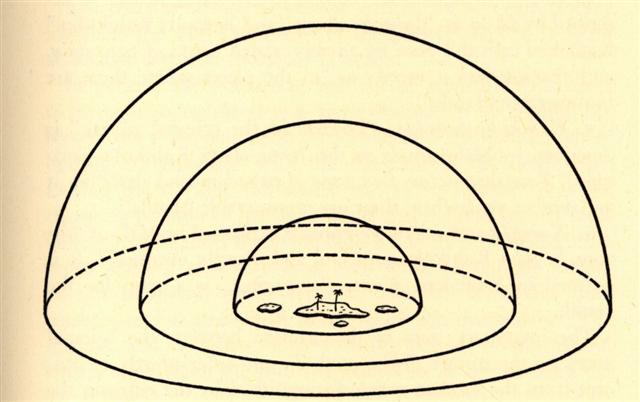
|




.jpg)
.jpg)




